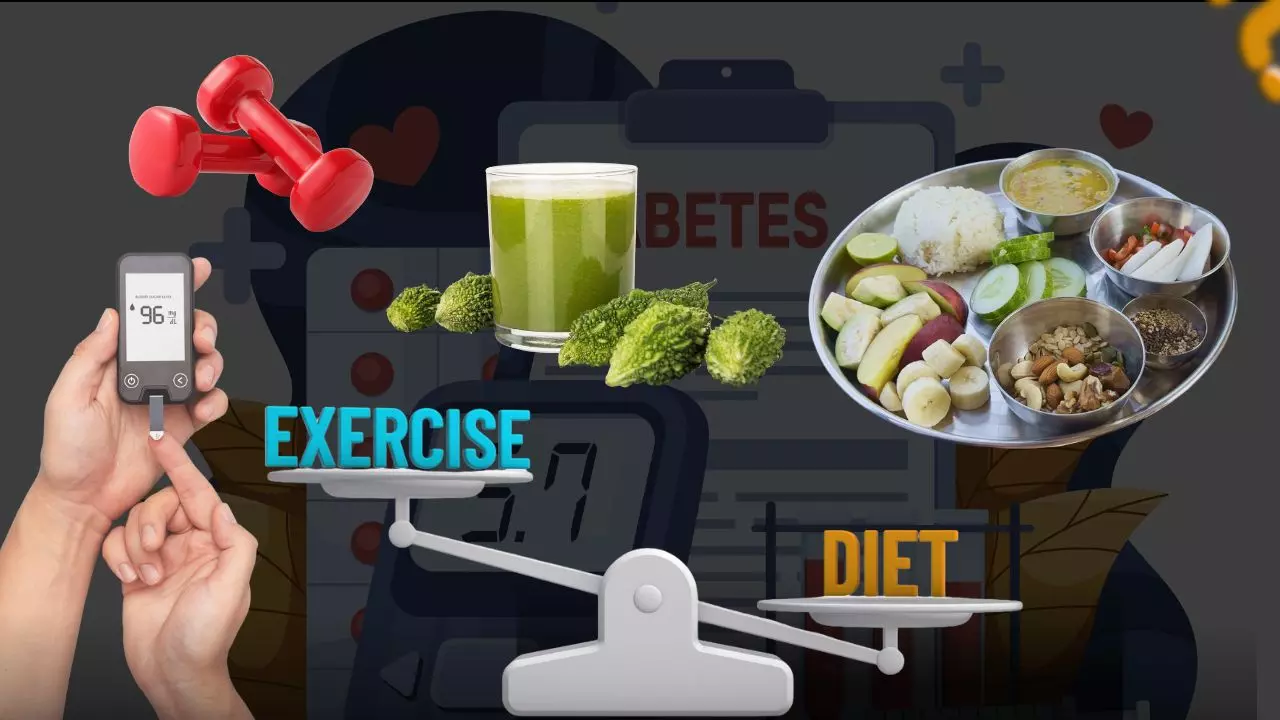
Second Opinion: Diabetes ‘reversal’ claims rise online as doctors warn remission is not cure
With social media flooded with miracle cures and extreme diets, diabetologists explain what real remission means, why quick fixes fail, and how unsafe experiments can harm vital organs

Videos claiming that bitter gourd juice cures diabetes in a week or that yoga alone can eliminate the need for medicines are circulating widely on social media. Doctors say these viral success stories often reflect temporary changes in blood sugar rather than true recovery.
In the latest episode of Second Opinion, medical experts explain what diabetes reversal actually means and why online remedies can mislead patients into unsafe practices.
Diabetes remission is not a cure
For Type 1 diabetes, doctors reiterate that no reversal is possible. For Type 2 diabetes, which accounts for the majority of cases in India, remission may be possible for some individuals, but only under specific conditions.
Clinical definitions classify HbA1c below 6.5 percent for more than three months without medication as remission. HbA1c below 5.7 percent for more than six months may indicate long-term reversal, but only if supported by sustained lifestyle changes.
Dr K Baraneedharan, physician and diabetologist at Kauvery Hospital, notes that remission does not mean a person can abandon dietary discipline. He explains that achieving HbA1c levels below 5.7 is possible with consistent diet and exercise, but this needs to be maintained lifelong. He adds that by the time diabetes is detected, about half of the pancreatic beta cells may already be lost, which makes continued effort essential.
Lifestyle factors now play a major role in diabetes. High-calorie diets, lack of exercise, poor sleep patterns, and chronic stress are significant contributors alongside genetics.
Rising numbers and evidence-based hope
India currently has more than 101 million people with diabetes and about 136 million who are pre-diabetic, according to the ICMR INDIAB 2023 study.
There is evidence that structured, supervised programmes can help early-stage Type 2 diabetics. The DiRECT Trial, published in The Lancet Diabetes, found that 46 per cent of individuals achieved remission after losing between 10 and 15 kg under medical supervision.
Why control matters
Senior endocrinologist Dr Ravikiran Muthuswamy from SIMS Hospital explains that poorly controlled diabetes leads to long-term damage to various organs. Prolonged high blood sugar can narrow blood vessels, raise harmful cholesterol particles, damage kidney function, weaken nerves, and affect vision. He emphasises that controlling diabetes early and consistently can prevent these complications.
The problem with viral home remedies
A growing number of videos promote the idea that bitter gourd water or cinnamon water can reverse diabetes. Doctors clarify that these only lower post-meal sugar readings by a small margin and do not significantly reduce HbA1c. This effect is temporary and cannot be considered a reversal by any clinical standard.
Stopping medication based on social media claims, experts warn, can lead to irreversible damage to the eyes, kidneys, heart, and nerves.
Extreme diets and sustainability challenge
Senior diabetologist Dr V Mohan cautions that extreme diets often recommended on social media produce short-term results but are rarely sustainable. When people abandon these diets, weight returns, and so does diabetes. He stresses that individualised medical guidance is essential and that people with a family history can still delay or prevent the condition with daily activity and a balanced diet.
Doctors recommend simple and sustainable dietary changes. Reducing carbohydrates slightly and replacing them with plant proteins helps. A balanced plate with half vegetables, one quarter protein, and one quarter carbohydrates can be maintained long-term.
A continuous process, not a finish line
Experts agree that diabetes reversal should not be seen as a one-time achievement. Patients must monitor their diet, exercise regularly, and check HbA1c every three months. Medicines should never be stopped without consulting a doctor.
As the episode highlights, viral content may promise quick results, but real remission requires medical supervision, evidence-based practices, and lifelong consistency.
(The content above has been transcribed from video using a fine-tuned AI model. To maintain accuracy and editorial standards, a Human-In-The-Loop process is used. AI generates the initial draft and the editorial team reviews and refines the content before publication.)

